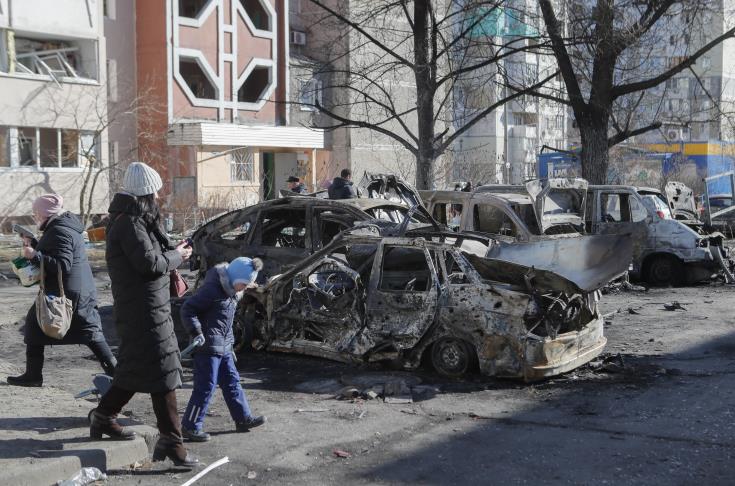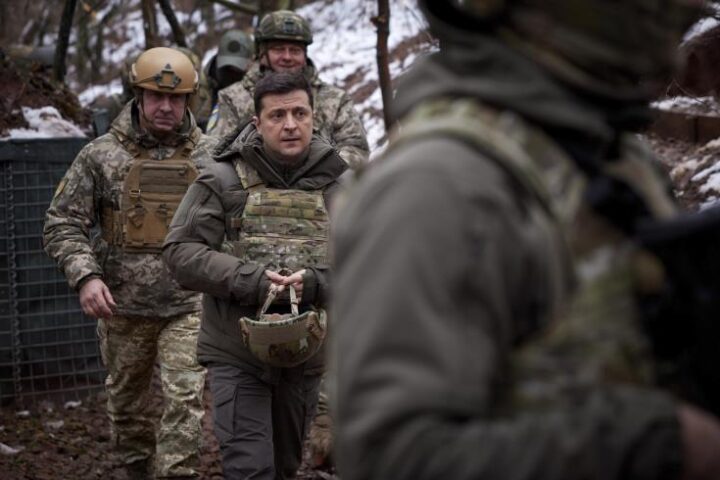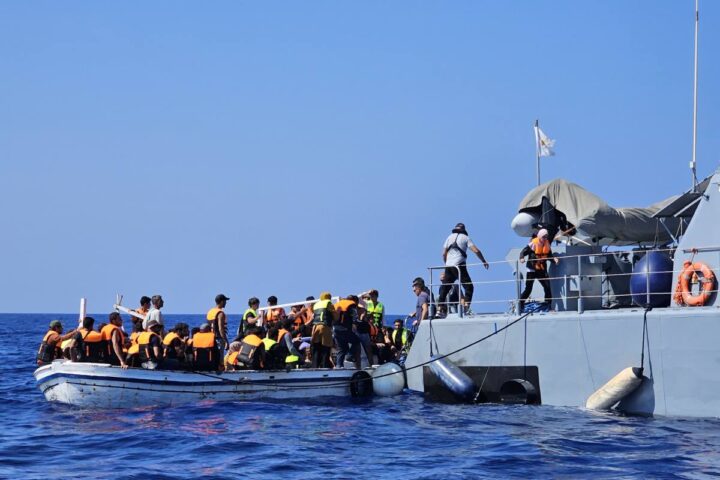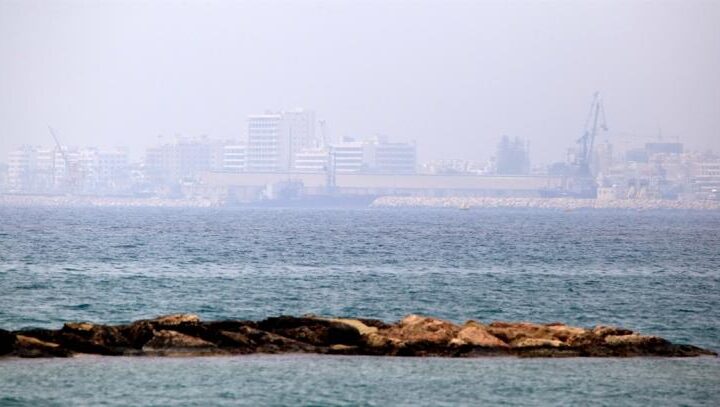As the war in Ukraine grinds on, many people are appalled by Russia’s brutality, particularly after its campaign suffered many reversals on the battlefield amid continuous US and Western support.
Europe is going through a new war of aggression, the likes of which have not been seen since Operation Barbarossa when Hitler’s Nazi regime went against his former ally Joseph Stalin and the Soviet Union.
Hitler’s operation wasn’t just a war of aggression and expansion but also one of annihilation.
During that campaign, entire cities were raised to the ground, and hundreds of thousands of civilians were killed or executed.
Millions were wounded, and even more, were left to starve to death or captured and forced to work until their dying day.
Since 24 February 2022, Vladimir Putin’s regime has waged a brutal war against Ukraine with continuous air indiscriminate assaults on cities and other civilian targets, leaving thousands dead, wounded, or without heat, homes, or limbs.
But one crime that stands out, according to the International Criminal Court, is the unlawful deportation and transfer of Ukrainian children from occupied areas of Ukraine to Russia.
It is a crime originally invented by the Ottomans more than 200 years ago when Greek Christian families were subjected to their rulers’ forced conscription of male children and enrolled in the Corps of Janissaries for military training in the Sultan’s army.
Their fearsome reputation made them an elite military unit for the occupiers.
It is not clear yet what happened to the Ukrainian children abducted by Russian forces.
However, a report submitted according to Human Rights Council resolution 49/1, the Independent International Commission of Inquiry on Ukraine, outlines the main findings since the outset of its mandate.
According to the executive summary of the report, “the body of evidence collected shows that Russian authorities have committed a wide range of violations of international human rights law and international humanitarian law in many regions of Ukraine and the Russian Federation.
“Many of these amount to war crimes and include wilful killings, attacks on civilians, unlawful confinement, torture, rape, and forced transfers and deportations of children.
“The Commission has concluded that Russian armed forces have carried out attacks with explosive weapons in populated areas with an apparent disregard for civilian harm and suffering.
“It has documented indiscriminate and disproportionate attacks and a failure to take precautions, in violation of international humanitarian law.
“In addition, the Commission has found that the Russian armed forces waves of attacks, starting 10 October 2022, on Ukraine’s energy-related infrastructure and the use of torture by Russian authorities may amount to crimes against humanity.
“It recommends further investigations.
“The Commission has documented a small number of violations committed by Ukrainian armed forces, including likely indiscriminate attacks and two incidents that qualify as war crimes.
“Finally, the Commission recommends that all violations and crimes be investigated, and those responsible be held accountable, either at the national or the international level.
“It calls for a comprehensive approach to accountability that includes both criminal responsibility and the victims’ right to truth, reparation, and non-repetition.”
We asked Christos Clerides, President of the Cyprus Bar Association, to give his views on the action taken by the ICC against Vladimir Putin for ordering the invasion of Ukraine and continuing its occupation.
What is the ICC, and what prompted the arrest warrant for Vladimir Putin? How can such a warrant be executed?
The International Criminal Court is the first independent permanent international criminal Court established by an international treaty (The Rome Statute) in 1998 to hold those individuals most responsible for the Commission of genocide, war crimes and crimes against humanity.
The Court has functioned since 2002; 123 states are members of the Rome Statute, whereas neither the Russian Federation nor Ukraine is a member state.
However, Ukraine has filed two ad hoc declarations accepting the jurisdiction of the ICC from November 2013 and onwards for the crimes committed in its territory.
There are also 42 member states which referred the Ukraine situation to the Court in February 2022.
Therefore, there has been an investigation by the Prosecutor of the ICC gathering evidence for the crimes allegedly committed in Ukrainian territory since 2013 by the most responsible individuals in the civil and/or military hierarchy of a state, irrespective of their nationality.
On this base, the Prosecutor, Mr Karim Khan, requested the Court to issue two arrest warrants against Vladimir Putin and Maria Lvova-Belova, Commissioner for Children’s Rights in the Office of Vl. Putin.
Since the immunity rule is not an obstacle for the Court (art. 27 of the Rome Statute), member states are obliged to arrest and surrender both charged individuals if they find themselves in their territory.
What crimes is President Putin accused of, and what are the political implications of this development?
The ICC considered that there are reasonable grounds to believe that both individuals are responsible for the war crime of unlawful deportation and transfer of children from occupied areas of Ukraine to the Russian Federation.
The Prosecutor argues that these children are taken from orphanages and care homes and given for adoption in the Russian Federation, awarding them Russian citizenship (based on a Presidential decree recently issued by President Putin).
These acts demonstrate an intention to permanently remove these children from their own country, although they are considered protected persons under the Fourth Geneva Convention 1949 on the protection of the civilian population.
There may be various political implications depending on the will of the member states to act, i.e., to arrest and surrender Putin and/or Lvova-Belova, in case the accused are to be found in their territory (e.g., during a meeting, a regional conference).
In practice, Vl. Putin cannot travel outside Russian territory except in that of a non-member state.
We must bear in mind that all arrest warrants are valid as long as the accused individuals are alive.
A similar case, characteristic of the practical difficulties of executing the arrest warrant against Putin, was the two arrest warrants issued in 2009 and 2010 against Omar Al-Bashir, the then-President of the Republic of Sudan who travelled to South Africa at that time. However, he was charged with many crimes by the ICC.
Since South Africa, a member state of the ICC, did not arrest and surrender Al Bashir, it was “accused” of not complying with its obligations deriving from the Rome Statute.
One thing is certain: the ICC member states have to decide whether they proceed to arrest Putin if they can do it and respect their treaty obligations according to their public declarations or remain inactive.
Some say that the action of the ICC is hypocritical because other countries in the past have also committed war crimes, yet they have gotten away with them. So what do you answer to them?
It is critical to understand the ICC does not have universal jurisdiction for every grave crime committed everywhere in the world.
Instead, the ICC can prosecute every responsible individual suspected of committing those crimes included in the Statute.
In addition, the Court functions complementary to the national courts, meaning that if a state whose individuals are accused of such crimes can and can prosecute them, then it has to do it following the requirements of the ICC.
Such a case occurred in the Iraq/United Kingdom situation regarding the military involvement of the British armed forces in Iraq in 2003.
In addition, the ICC opened an investigation in Afghanistan on March 2020 for the Commission of war crimes and crimes against humanity committed during the War of 2003 and onwards, despite the strong disagreement of the United States, whose armed forces have been involved in that situation.










